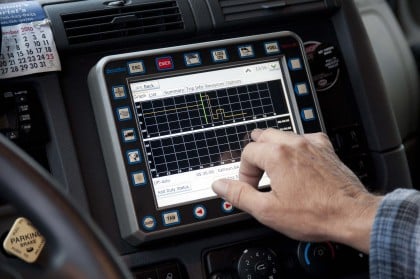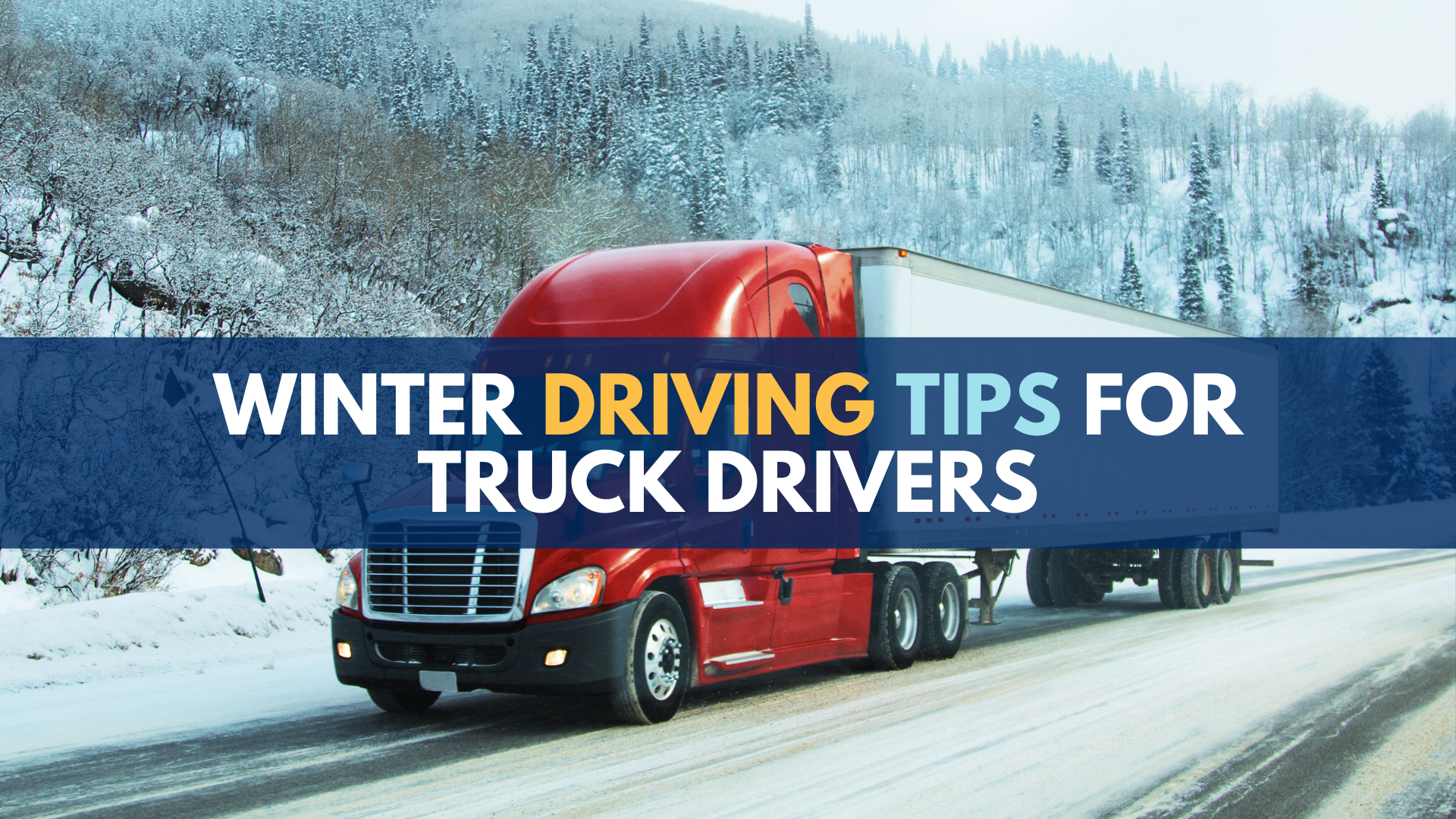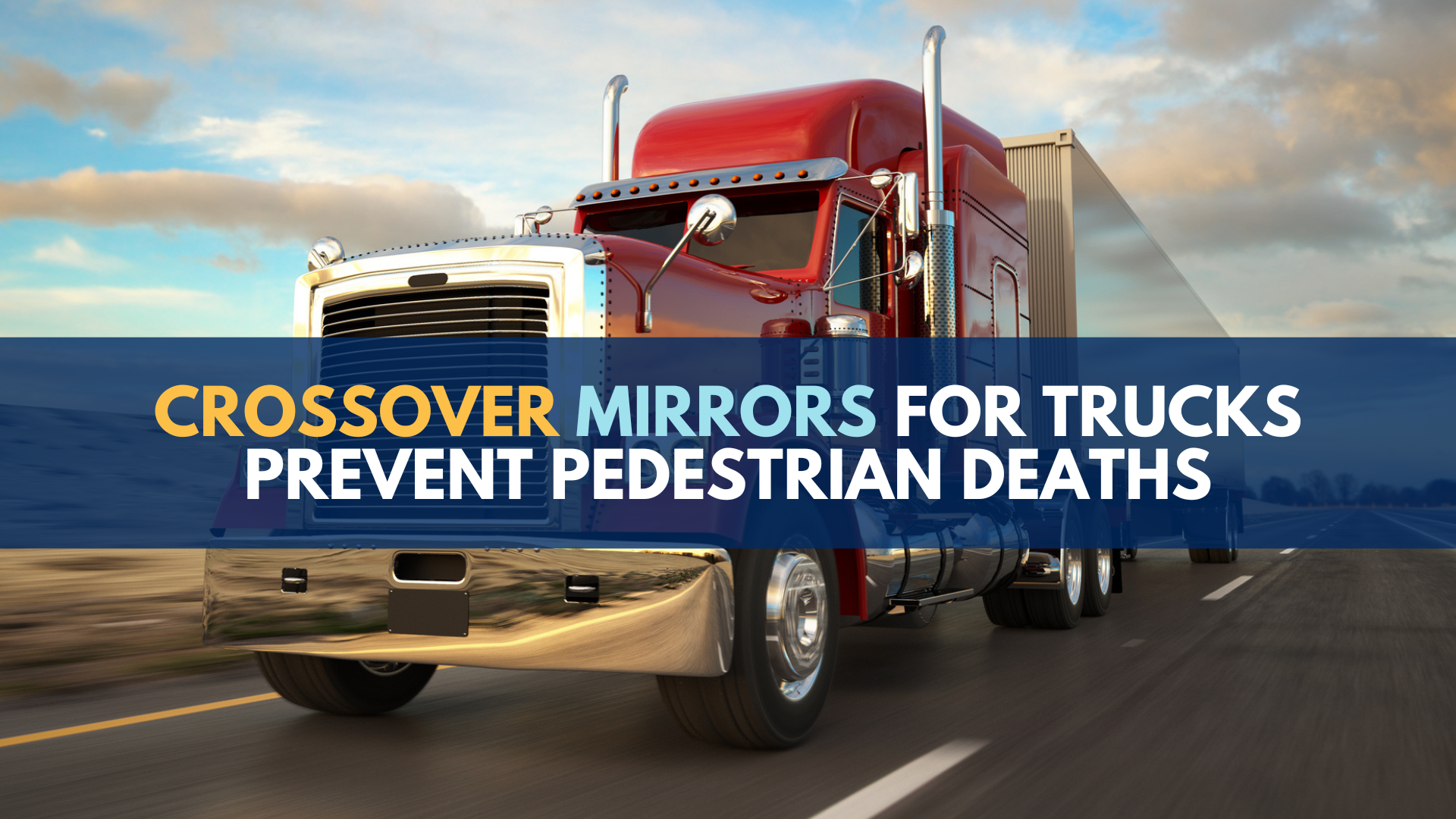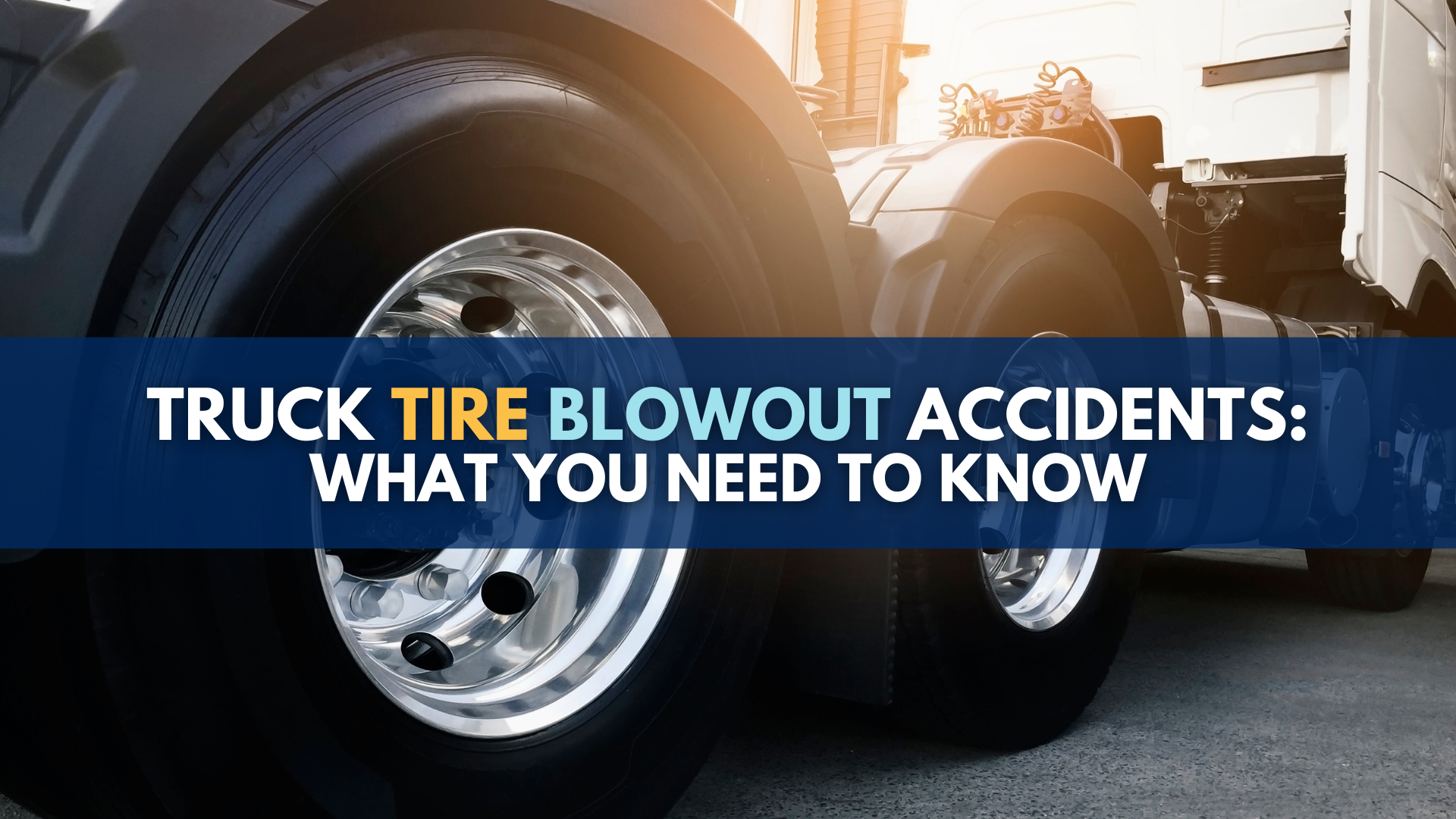DOT is mandating the use of electronic logging devices (ELDs) to track truck driver miles and duty status – instead of penciled-in log books

The Department of Transportation (DOT) is sending a strong message that it wants truckers to stop falsifying their log books. It’s doing so by moving up the expected publication date for a final rule mandating the use of electronic logging devices to September 30, 2015.
This means electronic logging devices (ELDs) will soon be required in every truck – within two years of the published rule date.
What are ELDs?
Electronic logging devices are a new technology that will eliminate the need for paper log books. The ELD recorders are tied to the actual truck and sense the truck’s location and operational data by pulling it from the truck’s black box and a location-based system like GPS.
There is a need for change to better protect the public. Many truckers I’ve deposed in my truck accident cases have derisively referred to them in depositions as “lie books.” The problem in so many commercial trucking cases is these log books depend on the driver to be honest. As an attorney, I’ve found that isn’t always the case. In some of my cases, I’ve found the driver keeps two sets of log books – one for his company and a second set in case he’s pulled over by police.
With ELDs, in the examples above from my own truck cases, it will be much harder for a dishonest trucker to manipulate the data. Since the data is recorded real time, there should also be a way for truck companies to better monitor it. That means better supervised drivers on the roads and less log book falsification.
The cost for ELD recorders is expected to be between $200-832 per truck. As Joe Fried outlined in our Truck Accident Attorneys Roundtable blog, the rule has four parts:
1. Requirement to use electronic log devices:
- Applies to all drivers who are required to keep paper logs eight or more days out of 30 days.
- All trucks must be equipped with ELDs two years after the effective rule date.
2. Protections against driver harassment:
- Proposed safeguards against harassment include expanded drivers’ access to records, explicit wording about carriers harassing drivers, implementing a complaint procedure, tougher penalties for harassing drivers, “edit rights” for drivers, limitations on location tracking, mute functionality for the devices and preserving driver confidentiality in enforcement proceedings.
3. Hardware specifications:
- More technologically advances than those required by 2010 Rule.
- Requirement for the device to be tied into the truck’s engine (to capture power status, motion status, miles driven and engine hours) and a location system for safeguards against tampering.
4. Hours of Service documentation drivers will need to carry after law goes into effect are:
- For every 24-hour period the driver is on duty, carriers must maintain no more than 10 supporting documents from either of these categories:
- Bills of lading, itineraries, schedules or other documents that show trip origin and destination;
- Dispatch records, trip records or similar documents;
- Expense receipts;
- Electronic mobile communication records sent through fleet management systems; or
- Payroll records, settlement sheets or similar documents that show what and how a driver was paid.
The history of paper log books
Historically, truck drivers have been required to use paper log books. Log books allow four different categories of duty status:
- On duty driving: On the road
- In-sleeper berth: Sleeping
- On duty not driving: Inspections, gas, loading and unloading
- Off duty.
Because paper logs rely solely on human input and the truck driver and truck company’s honesty, the accuracy of paper log books is often in question. Errors – either intentional or not – can easily be made with paper log books.
The new electronic on board recorders will make it much more difficult for the liars to lie and the cheaters to cheat.
Protecting truck drivers
Requiring ELDs on trucks should protect truck drivers as much as the public at large.
In so many of my own trucking cases, I represent the injured truck driver. Most people do not realize that quite often, it’s the truck driver who is injured due to another driver’s negligence, often in a passenger car. I hear from my clients all the time about the pressure so many truck drivers are put under to drive over hours by their own companies, and often to lie on their paper log books.
ELDs mean safer roads for all of us.
Related information:
Truck driver fatigue: Leading factor in 4,000 truck accidents a year


